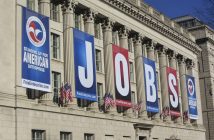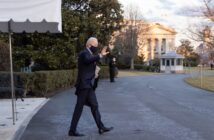The intention behind the EB-5 investor visa program was noble. Spur economic growth in impoverished parts of the U.S. by allowing foreign nationals to obtain green cards in exchange for investing at least $1,000,000 in a new commercial enterprise.
The reality of the EB-5, however, is different as the program has been a bigger financial benefit to the noble class than those living in the targeted employment areas (TEAs) it was meant to uplift. And that reality has been known for some time.
In 2015, the Government Accountability Office (GAO) issued a report noting that “fraud risks in the EB-5 Program are constantly evolving, and they continually identify new fraud schemes.” A year later, New York finance broker Howard Michaels characterized EB-5 as the “crack cocaine” of real estate financing.
Just last month, Sens. Chuck Grassley (R-Iowa) and Patrick Leahy (D-Vt.) wrote the Trump administration urging them to finalize proposed rules of the EB-5 program.
“For years, we have watched with growing alarm as the EB-5 program has strayed further and further away from what Congress envisioned,” wrote the senators, who argued the new regulations would “re-align” the current program with Congress’ original vision.
The fraud and misappropriated funds for one project in Vermont was so bad, the state’s EB-5 program was shut down. The Obama administration tried to get reforms through Congress. They failed despite widespread recognition of the systemic weaknesses in the program and the likelihood for abuse.
If anyone has any doubts, simply consider how New York state drew well outside the geographic and ethical lines to get approval for Hudson Yards, a luxury real estate development in Manhattan that was partly financed through EB-5.
“As a community bordered by expensive neighborhoods such as Chelsea and Hell’s Kitchen, Hudson Yards was too wealthy on its own to qualify for the EB-5 program. To solve the problem, the state included a few census tracts from Harlem as part of the overarching TEA,” reported Business Insider.
In an excellent expose on how EB-5 was exploited to finance Hudson Yards, CityLab’s Kriston Capps pointed out that unbeknownst to them, the residents of public housing projects in Harlem helped build the development.
“The mega-luxury of this mini-Dubai was financed in part through a program that was supposed to help alleviate urban poverty. Hudson Yards ate Harlem’s lunch,” he wrote.
What the Trump administration does related to finalizing the new rules remains unclear. What is likely is that the system will continue to be gamed at the expense of the poor and rural areas in need of taxpayer financing.
If you can’t mend it, just end it.





2 Comments
High Tech Repression of This Immigration Reform Website?
“Immigrationreform.com” is rated “very risky” by McAfee virus S/W and warns folks to stay clear of this site this morning….sounds like a possible lawsuit against McAfee to me. Get your attorneys on it.
More spin from the Washington Post owned by open borders globalist Jeff Bezos. A story by reporter Dan Balz opens with the statement: “President Donald Trump’s immigration policies have been a failure”. No recognition that the real reason for this is that everything he has asked of Congress was not delivered, instead all he got from Democratic leaders is that there is no crisis so we’re giving you nothing. Nor any mention of the numerous policies of his that have been put on hold by liberal judges.
Then the reporter claims “Meanwhile Democrats are also struggling to articulate policies that would both solve the immediate problems at the border and insulate themselves from Trump’s charge that they are soft on illegal immigration”.
Then he says: “One presidential candidate {Julian Castro} has taken up the challenge.” “He advocates a path to citizenship for millions of undocumented immigrants who already reside in the country”. “Another proposal calls for a change in the law that would make illegal entry a civil rather than a criminal penalty, allowing for more lenient treatment than the current law allows”.
So somehow proposals that would only encourage and incentivize more illegal entry means Castro has “taken up the challenge” of solving “the immediate problems at the border”.